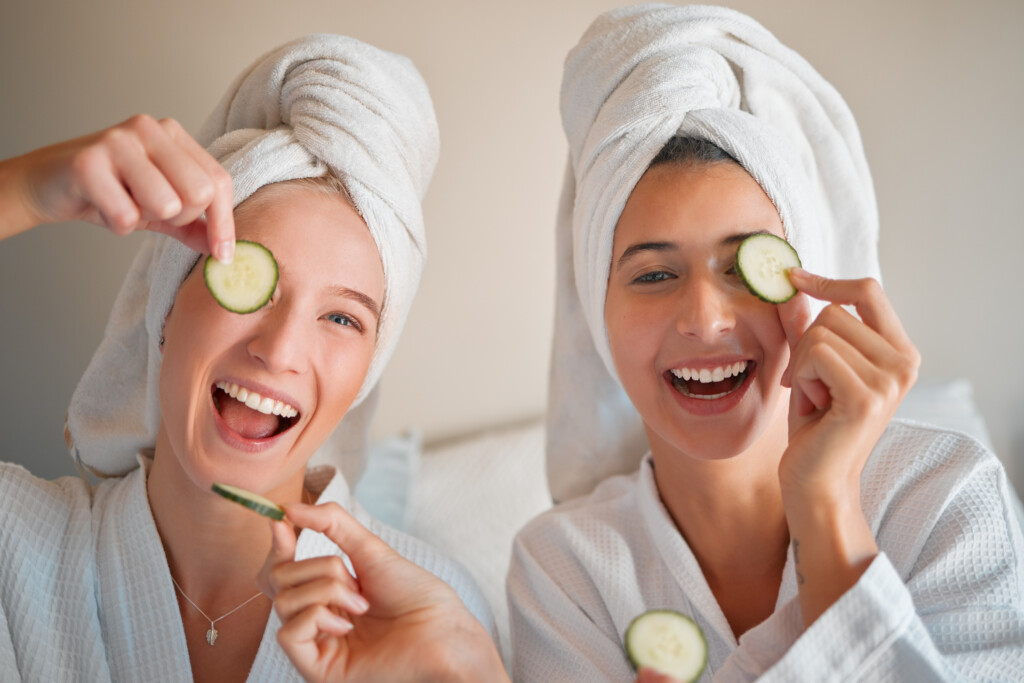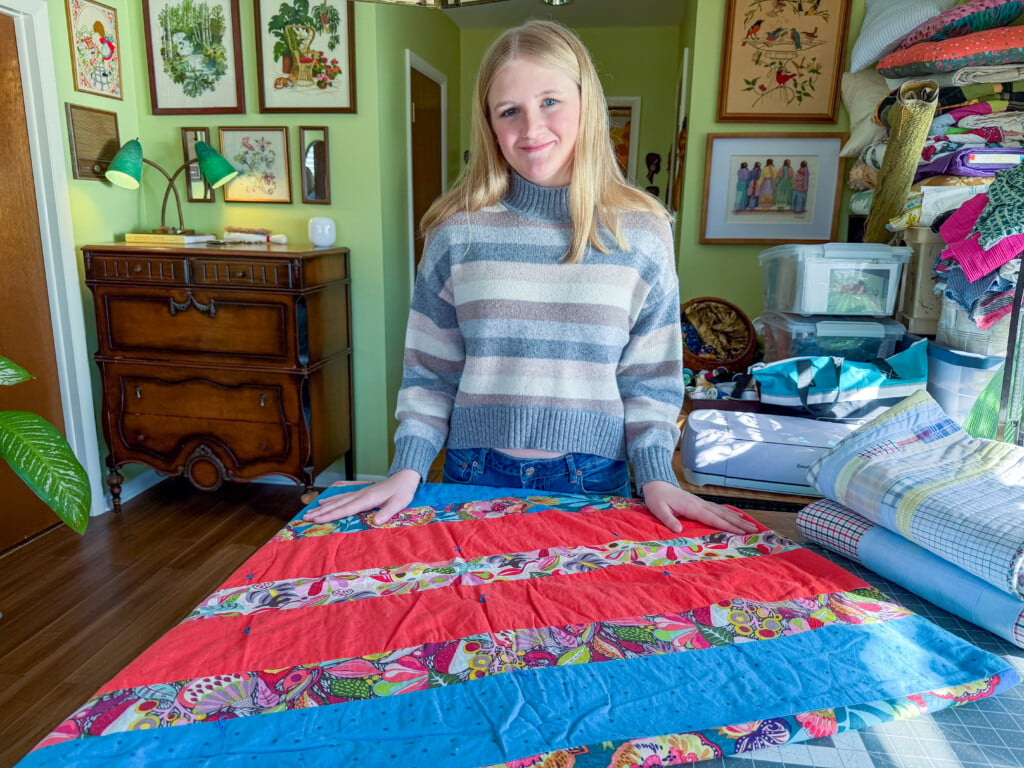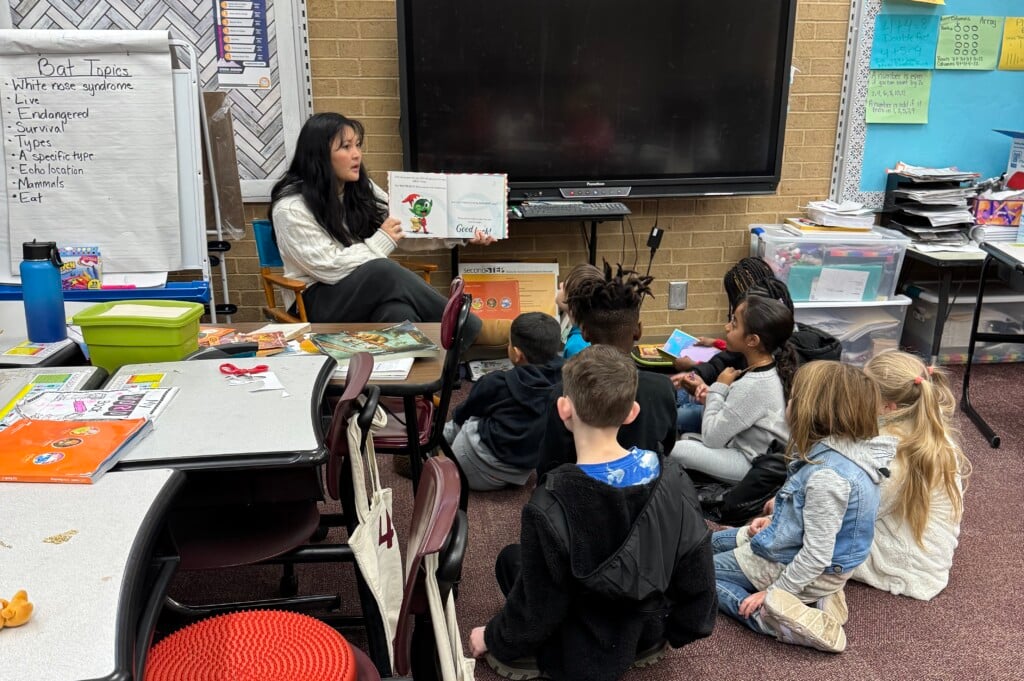Skinfluencers May Be a Bad Influence

For a certain generation who grew up in blissful ignorance of the sun’s potential to wreak havoc on their hide and their health, “skincare” often amounted to a generous slather of baby oil poolside and a heaping dollop of cold cream before bed. With the advent (and onslaught) of social media and its “influencer culture,” a number of teens, and even preteens, are now adopting multistep regimens, complete with expensive serums and potions. Although knowledge can be power, misinformation can lead to teens purchasing unnecessary, and possibly irritating, products. When it comes to adolescents and skincare, simplicity is key.
The basics
When looking for skincare advice, Nicole Papac, MD, an assistant professor in the Department of Dermatology at the University of Oklahoma College of Medicine, recommends teens consider the source, especially when it comes to TikTok “skinfluencers.”
“There are some that might be being reimbursed by companies and really have more of an incentive to just sell products to make money,” she notes. “Then there are some of them who are actual board-certified dermatologists, so just be mindful of that.”
Papac has seen teens spend money on products with active ingredients that might not be worth the cost and others who take a lot of unnecessary steps in their skincare routine.
“When you’re building a skincare regimen, there are a couple goals. One is the properties of the products. Do they reduce acne or protect you from the sun? Those are all good things,” she says. “There’s another component of skincare regimens that’s self care and wellness. Sometimes people like a product because it feels good on their skin. It smells nice. I don’t want to discount that. It’s a legitimate thing, if it makes you feel good.”
Ultimately, Papac advises teens to keep their skincare regimen simple, especially if no real skin issues exist.
“Keeping the skin clean, moisturized, protected from the sun, and then avoiding harsh chemicals and fragrances as much as possible,” she says. “Products that might not be as fun, but that are more bland and fragrance free tend to be my preference.”
Some of the brands Papac recommends include Cetaphil, CeraVe and LaRoche-Posay.
Sunscreen, sunscreen, sunscreen
Papac, like others in her profession, advises patients to protect their skin from the damaging effects of the sun with sunscreen and SPF clothing, hats and sunglasses.
“I love sunscreen as part of a skincare routine. It’s important to use sunscreen, even at an early age. If you’re going to use a moisturizer every morning, I always recommend picking one with a sunscreen in it – SPF 30 or above,” she says.
Papac says sunscreens come in two types, mineral and chemical. There are pros and cons to each. Mineral sunscreens are physical blockers that sit on top of the skin. They’re effective, but they can have a white, chalky appearance and be difficult to blend in. Chemical sunscreens may be more irritating, and some people are nervous about absorbing chemicals through their skin.
“A lot of these companies have created tinted mineral sunscreens that can work for all skin types. Sometimes I use a tinted mineral sunscreen like my makeup, so that can be an option,” she says. “At the end of the day, it’s better just to use the sunscreen that you like and that you think feels nice on your skin.”
While sun protection is very important, Papac likes to remind her patients not to be afraid of the sun.
“I want you to be outside and enjoy your life, especially if you’re active. That’s a good thing,” she says. “Just be mindful of your sun exposure and take precautions to protect yourself.”
Active Ingredients
For teens with acne or other skin issues, Papac says to look at a product’s active ingredients.
“For acne, there are some good active ingredients to look for if you don’t have skin that is too sensitive. Salicylic acid is nice, and it can be found in some washes. Azelaic acid is in some serums over the counter. It’s nice for acne, rosacea and hyperpigmentation, melasma-type problems,” she says. “There are things like benzoyl peroxide washes. You just want to use all these products as directed.”
If over the counter products aren’t working, Papac encourages teens to see a doctor as soon as possible. Untreated severe acne can eventually cause scarring. A dermatologist, and even a pediatrician or primary care physician, can help.
“Talk to your parents if you feel like you need to see a doctor, or talk to your doctor when you go for your ‘well child’ visit,” she says. “Don’t be shy to bring it up. It’s super common. It’s not embarrassing. Almost every teenager gets it, and there are excellent treatments that we have to help get your skin clear.”
 Julie Wenger Watson is a freelance writer who’s worked in all aspects of music promotion. She’s also Co-Director of “Live From Cain’s,” a public radio show pilot.
Julie Wenger Watson is a freelance writer who’s worked in all aspects of music promotion. She’s also Co-Director of “Live From Cain’s,” a public radio show pilot.




